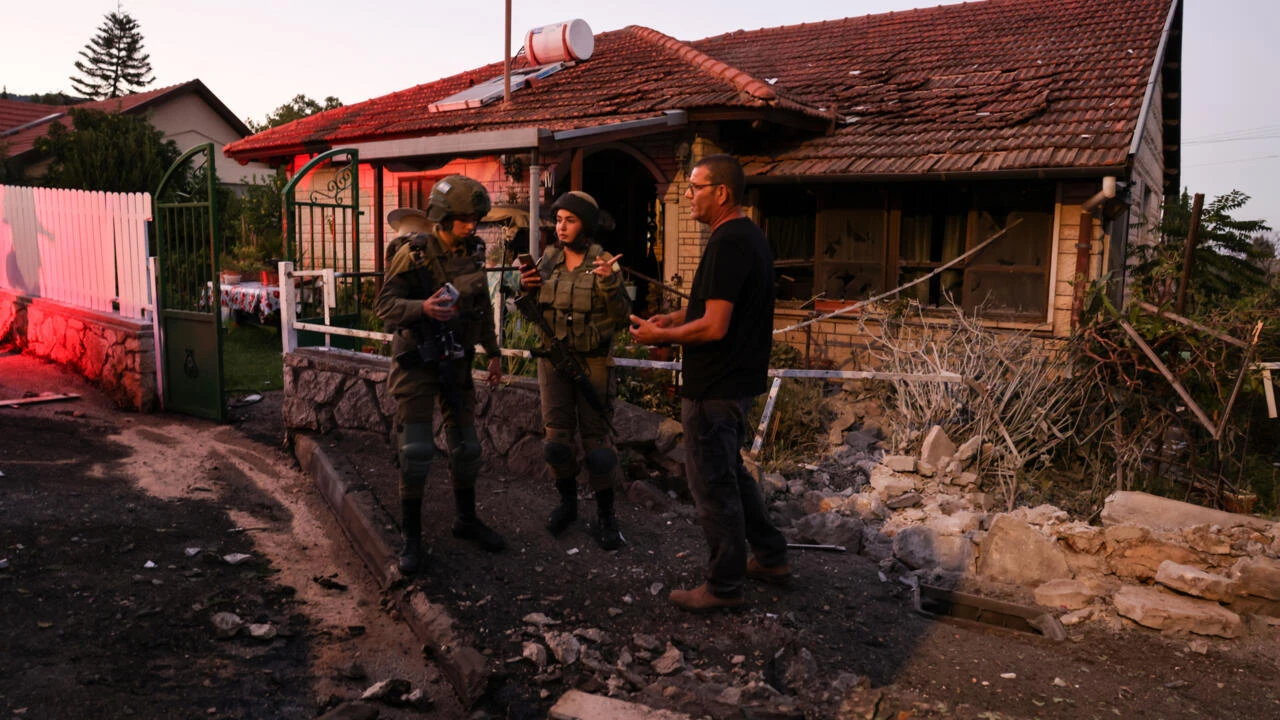In border town, Israelis torn between relief and fear

Stay tuned with 24 News HD Android App

Out buying groceries in the northern town of Rosh Pina near the border, Matan Sofer had mixed feelings after Israel killed the head of Hezbollah, which fires rockets daily into Israel.
"I feel uncertain -- we don't know when this is going to end," Sofer, 24, told AFP.
Hassan Nasrallah, who headed Hezbollah for more than 30 years, was killed in a Friday air strike on Beirut's southern suburbs that Israel's military said killed more than 20 other members of the group.
"Nasrallah was responsible for the deaths of many Israelis, so it is good news," said Sofer, who also feared the outbreak of a wider regional war.
"But do we risk it getting worse, who knows?" he said.
The Iran-backed Hezbollah launched low-intensity cross-border strikes targeting Israeli troops after its Palestinian ally Hamas attacked Israel last October 7, sparking the Gaza war.
Down a colourful alley in Rosh Pina, one of its 3,000 residents, Batia Yelloz, rejoiced at the news that the Lebanese commander had been killed.
"May he go to hell," said the 93-year-old who has lived in the town for seven decades and whose home was hit by rocket fire on Thursday.
Pointing to smashed flower pots, Yelloz said she was lucky to survive the strike, but saddened by the damage it caused to her home and to others.
Nearby cars and houses were also hit.
The past week's waves of Israeli strikes targeting Hezbollah, a powerful political, military and social force in Lebanon, have intensified fears of more violence to come.
But residents of the leafy settlement of Rosh Pina still went about their daily business on Sunday, filling shops and restaurants.
'Beginning of the end?'
Eva Cohen, 57, was evacuated in early October from the border city of Kiryat Shmona some seven kilometres (four miles) from the border.
Hezbollah has targeted Kiryat Shmona for the past year, and Cohen now works at a jeweller's in Rosh Pina.
World leaders have been calling for at least a temporary ceasefire between Israel and Hezbollah, but Cohen believes it is too soon to end the war.
"It's not over," she said, sitting at a cafe with a friend.
"There are still many terrorists. We will return home when it is completely secure. Regardless of how long it takes, we're patient."
Her friend Simi Vaknin, 69, who is also from Kiryat Shmona, said her job pushed her to stay there despite the rocket fire, after the great majority of residents fled.
She is a municipal employee, and said she felt an obligation to help the hundreds of families who had remained in the city.
"It's a ghost town. We shop for groceries and rush to a shelter," said Vaknin. "It's terrible."
"I have faith in the army," she said. "It will know whether to continue the war or end it.
"We don't know what will happen to us -- we can only hope things will get better."
Military vehicles and reservists could be seen on a road downhill from Rosh Pinna. A few kilometres out of town, dozens of Israeli armoured vehicles manoeuvred in a field.
The Israeli army had on Wednesday called up two reservist brigades "for operational missions in the northern arena".
On Sunday afternoon, the air raid sirens wailed once more in Rosh Pinna and in cities in northern Israel.
"Is it the beginning of the end? The risk of a new escalation? I'm confused, I really don't know what tomorrow will look like," said Sofer.
